Third Cut Page James Roberts, born abt 1753 Many, if not most, men like James Roberts, William Lee and James Armistead Lafayette chose to return home to slavery status after serving honorably in the rebel armed forces for a very simple reason we ought to understand: their enslaved family members. Such was the case that most men and women then and now have a belief system that puts God, family and self first, ... in that order. 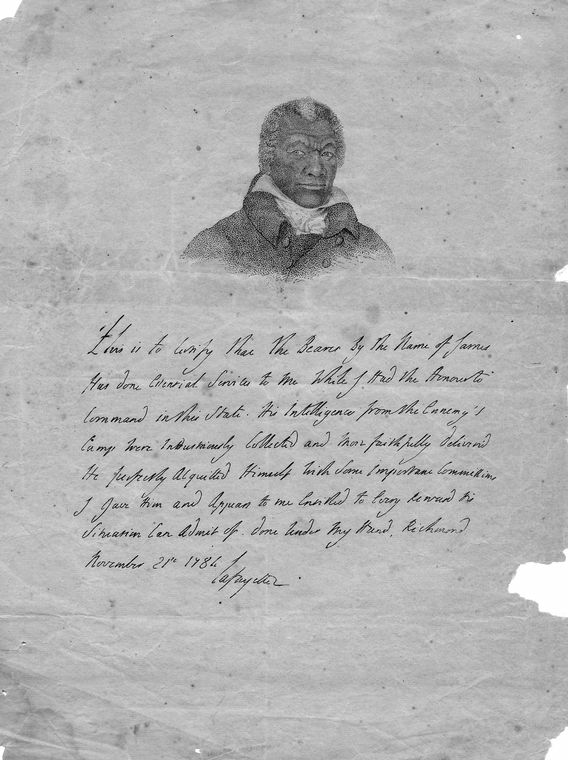
Slave owners like George Washington and Thomas Jefferson understood that most run-away slaves were usually young males and females unattached to family matters to bound them there. But, the dilemma for them was that recognizing family formations and ties among slaves also entailed allowing propagation of Christian beliefs, ... recognizing their humanity and thus yearnings for human liberty. By time of his death in 1799, George Washington apparently had a change of mind on the subject after witnessing explosive growth of slave imports, births, and dispersions since the revolution in name of liberty. International traders in slaves were no longer restricted by British tariffs and quotas; and slave women were routinely impregnated by plantation studs to generate offspring.
It is silly to imagine George Washington having anyone other than William Lee as his bodyguard against friend or foe. And, the notions that Molly Pitcher, Sojourner Truth and Harriet Tubman though highly notable did not or could not have contributed as much or more than any one of several hundreds of companies of armed, trained, deployed and engaged young Black men in the revolutionary or civil war? Yet, we know heroes (including John Wayne) are chosen by the literary arts, not generals or historians. 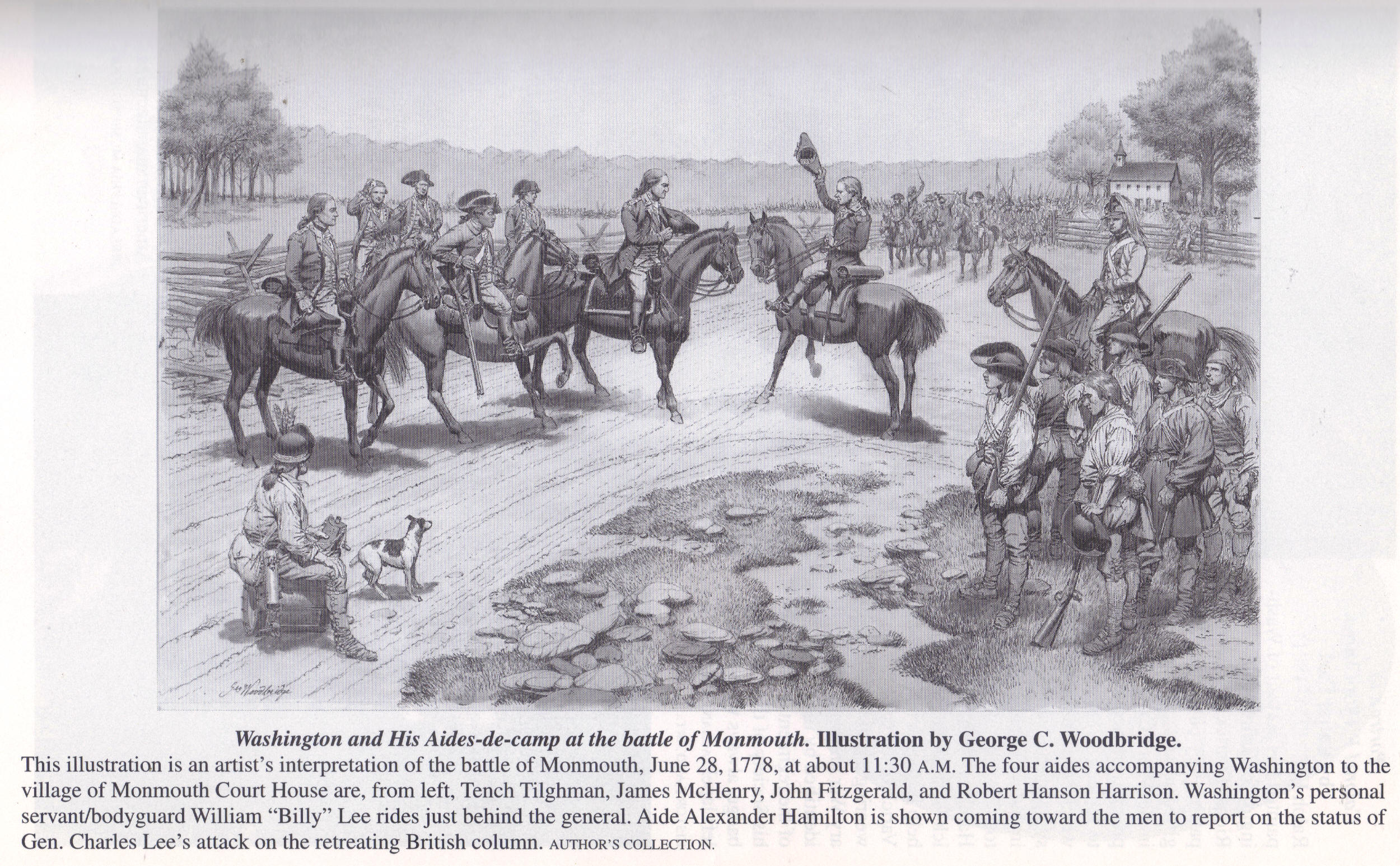
Rhode Island had a lot of rich White men with a lot of reasons to want economic and political independence from the economy and power of King George and his fellow aristocratic friends that dominated and exploited the trade routes and goods traded in the British Empire, ... including the very lucrative whaling, fur and slave trades. "Britania" ruled the waves, and with them out of the way, ... liberty was conceived to be possible for aspiring colonials in North America who did not hesitate to reason that arming former slaves and slaves was a practical means and method for achieving their goals. Early America 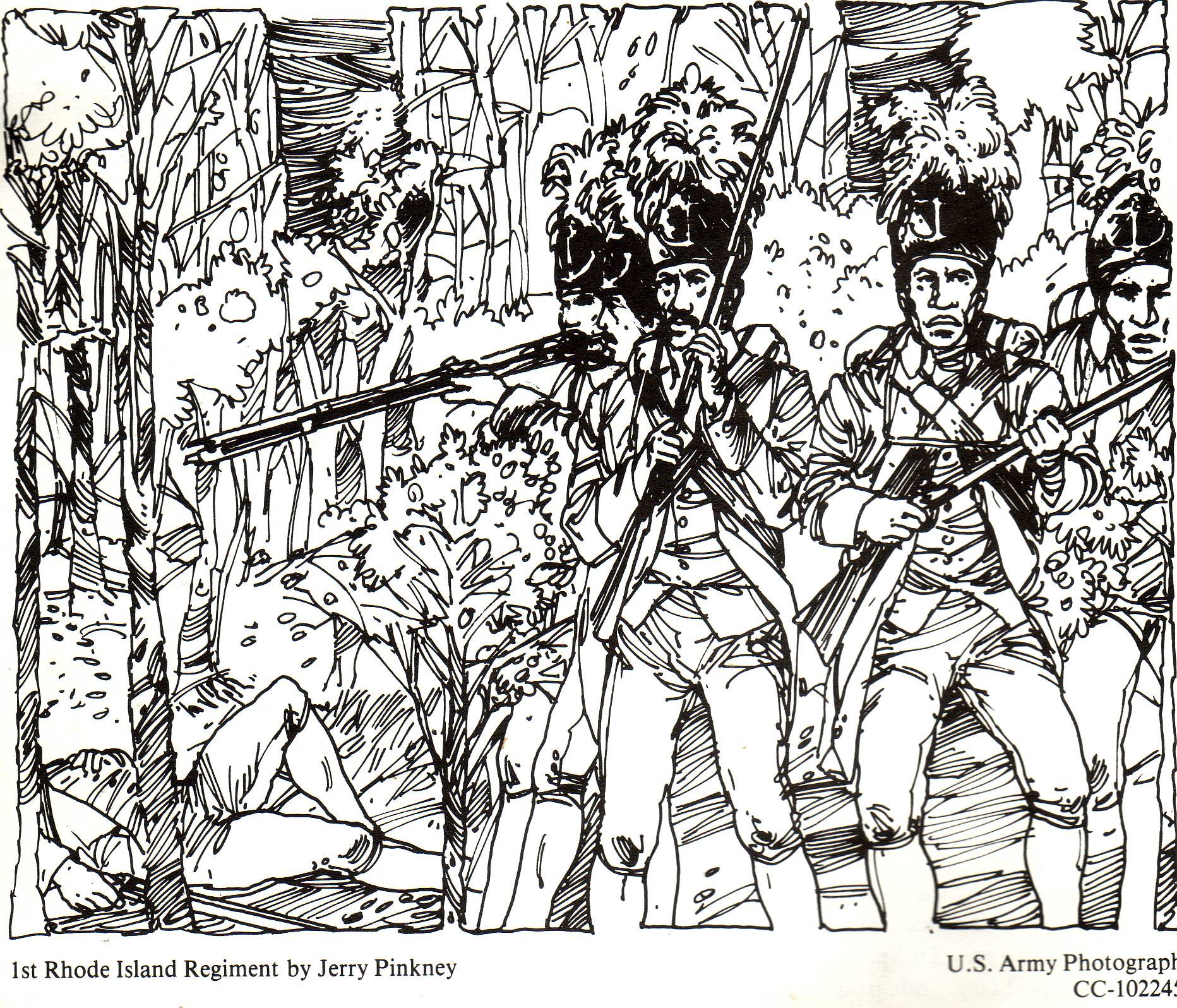
Venturing out away from home and hearth always requires a certain degree of courage by men or women; but, the movement of young Black men via river, road and rail away from places of bondage has a uniquely different history. 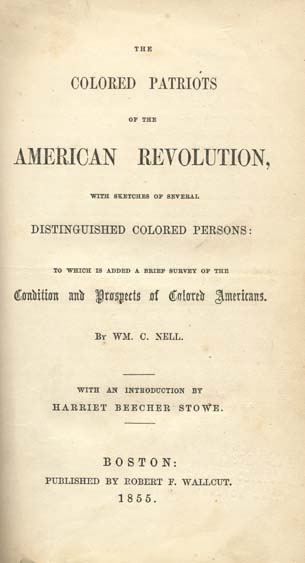 Chased and hunted like animals during the Abolition Era that raged from at least the Fugitive Slave Act of 1790 to outset of the Civil War in 1860, ... decisions to move required levels of courage that most slaves did not have. By the time Congress passed the reinforced Fugitive Slave Act of 1850, ... slave runaways were considered a crisis situation although most of the annual 50,000 runaways were eventually caught and returned by law to lives as slaves. Chased and hunted like animals during the Abolition Era that raged from at least the Fugitive Slave Act of 1790 to outset of the Civil War in 1860, ... decisions to move required levels of courage that most slaves did not have. By the time Congress passed the reinforced Fugitive Slave Act of 1850, ... slave runaways were considered a crisis situation although most of the annual 50,000 runaways were eventually caught and returned by law to lives as slaves.
Emancipation Patriots 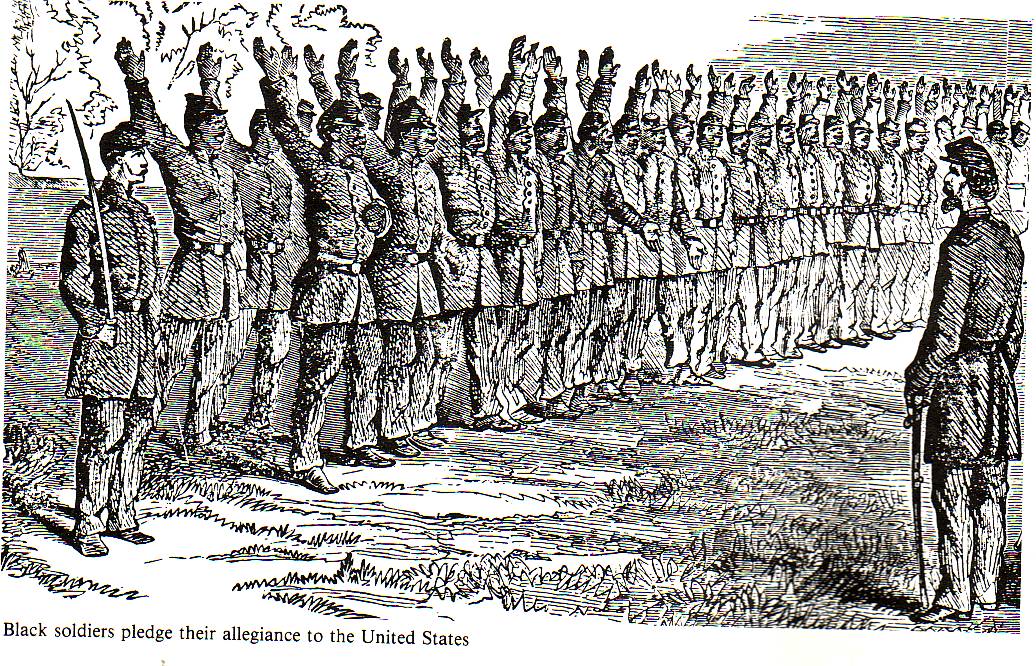 But, keep in mind that among the four million men, women and children enslaved and shackled in the rebel confederacy of states determined to keep them so, there were nevertheless a lot of them and theirs who actively, if not reluctantly, ... supported the peculiar institution of chattel slavery. In fact, it is all the more amazing that so very few movie and television programs ever mention functional Black men in the late great revolutionary and industrialized America that included young Black and White men in the stress and strains of war and labor (work). But, keep in mind that among the four million men, women and children enslaved and shackled in the rebel confederacy of states determined to keep them so, there were nevertheless a lot of them and theirs who actively, if not reluctantly, ... supported the peculiar institution of chattel slavery. In fact, it is all the more amazing that so very few movie and television programs ever mention functional Black men in the late great revolutionary and industrialized America that included young Black and White men in the stress and strains of war and labor (work).
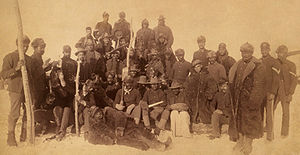
We want it clearly understood that so-called Buffalo soldiers such as reflected in above picture were recruited and deployed in the once wild west after the Civil War until the post-Spanish American War. They had no love lost for the Cherokee natives west of the Mississippi River who had both owned large numbers of slaves and served in the Confederate military forces. Hundreds of African-American soldiers had been massacred and scalped by the Cherokee soldiers in the battle at Fort Pillow Arkansas. Cherokee military history 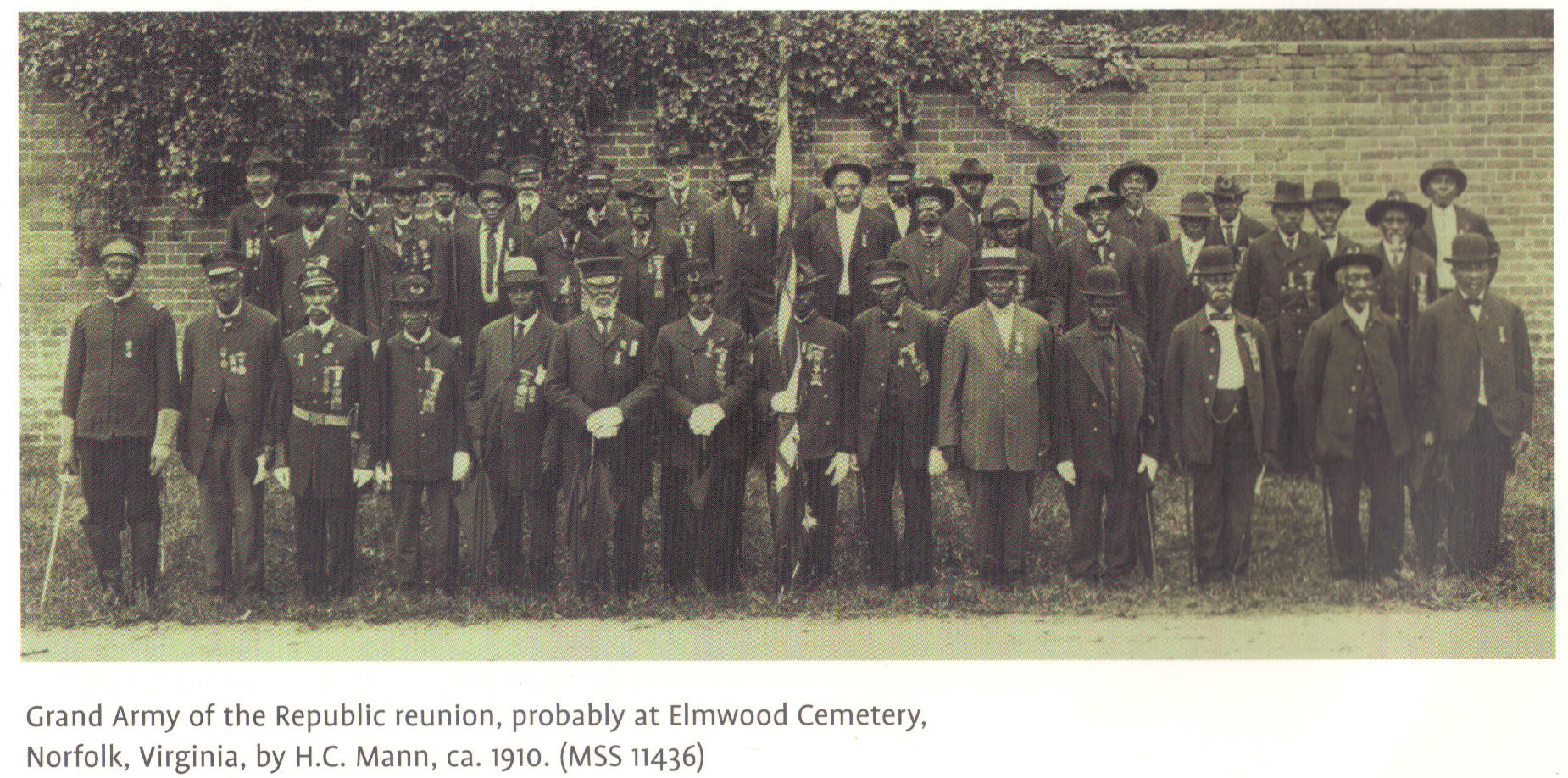
Young men of African heritage who joined and served in military regiments deployed east and west of the Mississippi River following the Civil War learned the histories of their predecessors and passed it onto the men who worked on railways and wagon trains of livery goods and services between Saint Louis and points west. Communications zones of free-men of color were free to tell what they had seen and heard about not only the geography west of the Mississippi River, but also people such as the Plains Indians, males and females, ... including those that were deemed to be dangerous and unfriendly to themselves or others such as White and Black traders and settlers. 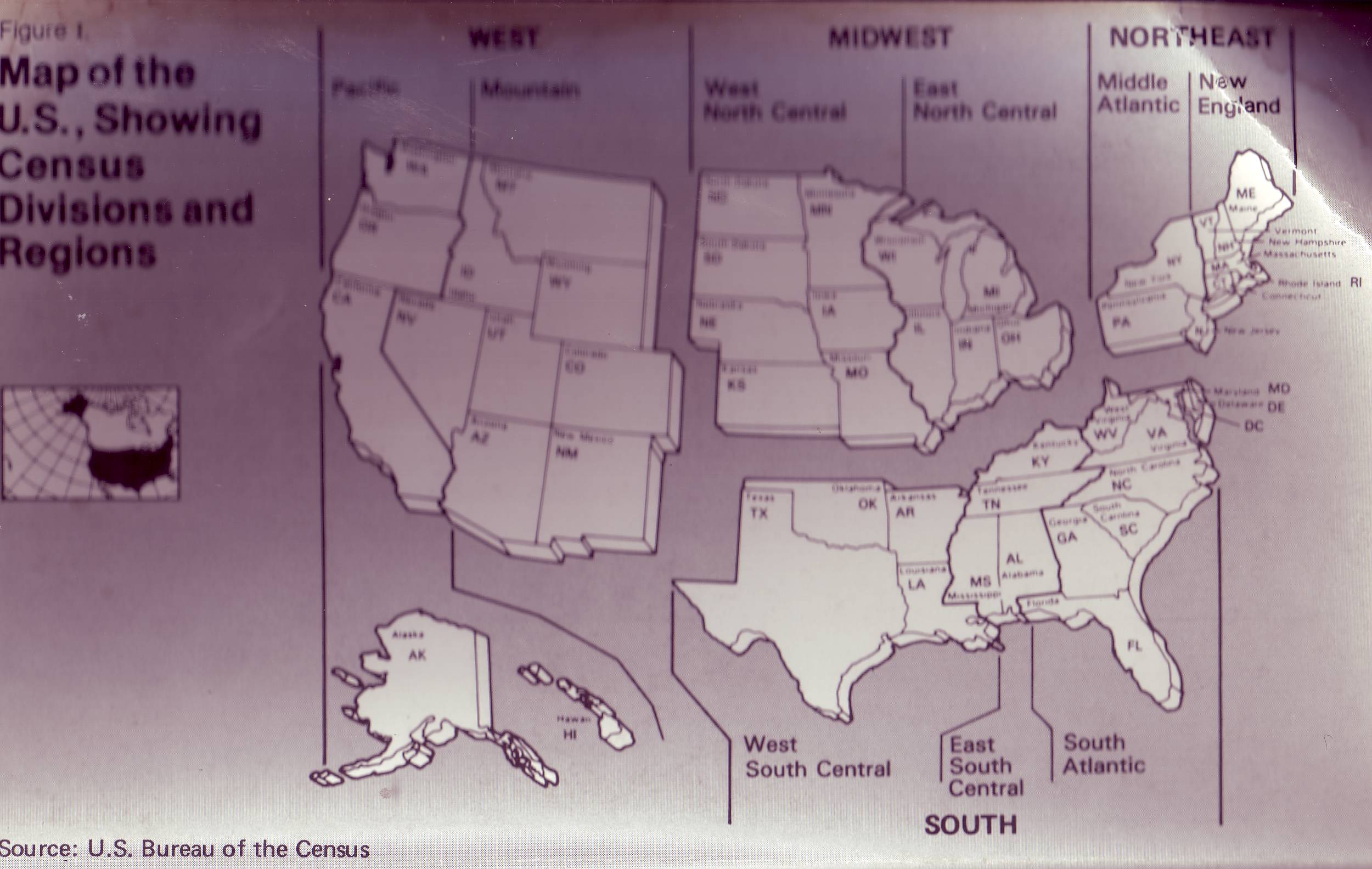
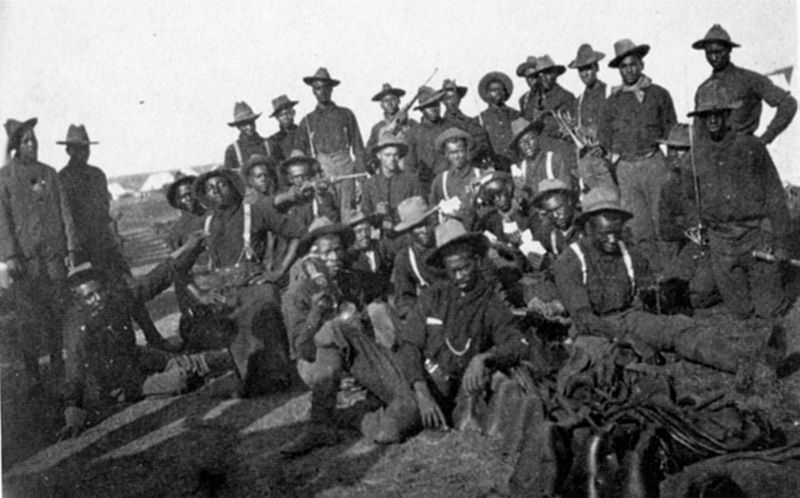
These men traveled over hundreds and thousands of square miles of unsettling lands and waters nothing like a few square blocks of modern urban ghetto squalor. It stands to reason that people of African heritage in the Americas, Caribbean and Africa have never been monolithic in cause, color or even gender but writers usually are and reflect such in their world view of the past, present and future. 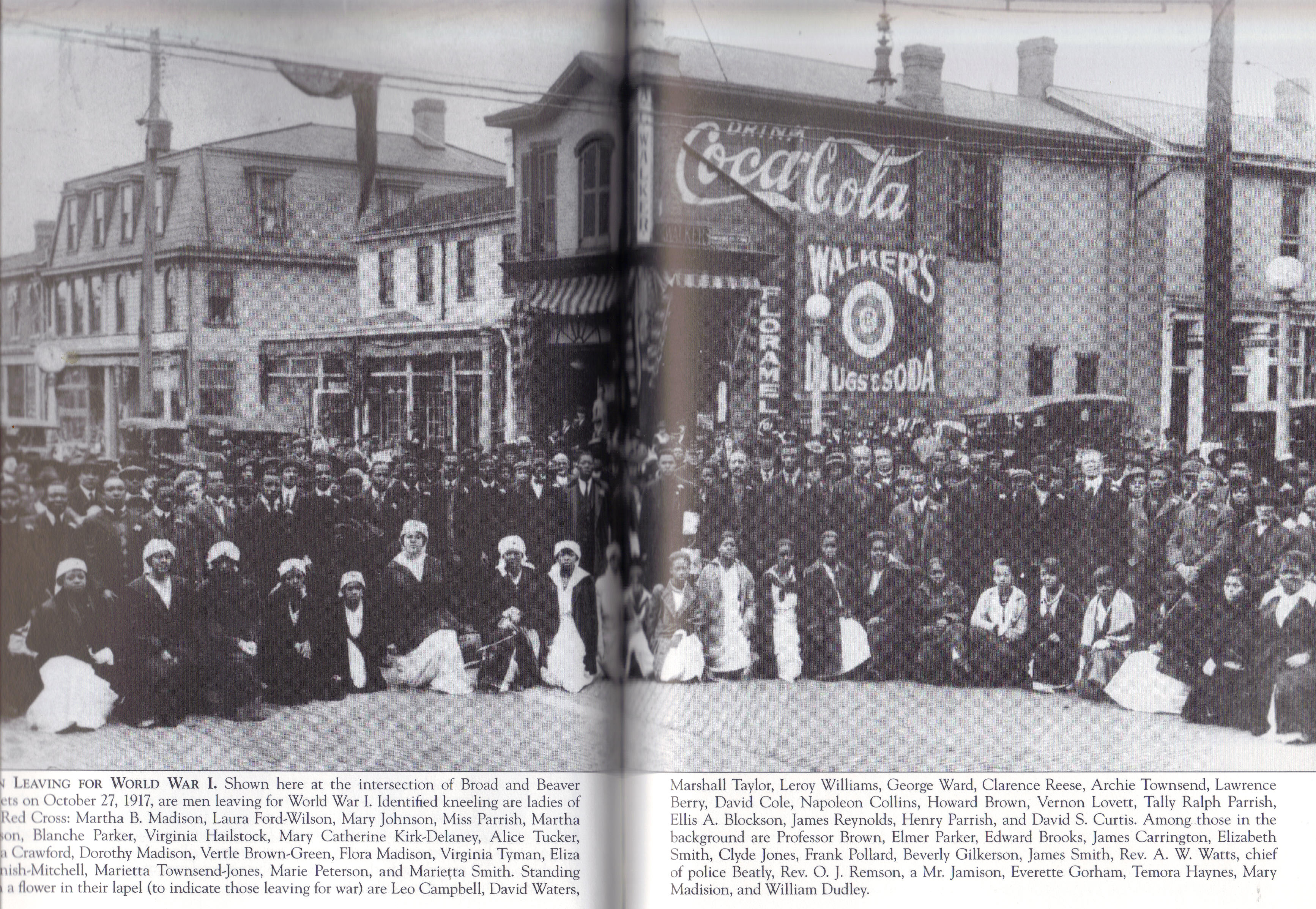
Even the best actors are unable to portray characterizations of people or persons they cannot imagine to have existed. So, almost without exception when directors choose to use Black men for character roles in dangerous, dark, dirty and developing situations, ... the actor chosen will likely portray buffoonery and uncivil attitudes and behaviors made most popular during the Vietnam War by actors and writers opposed to and actively avoiding it. Our problem with such is that young men of color are often discouraged via Hollywood and their mothers from aspiring for work and good wages where best opportunities and money are to be found for goodness sake such as the military, government and mineral extraction industries. 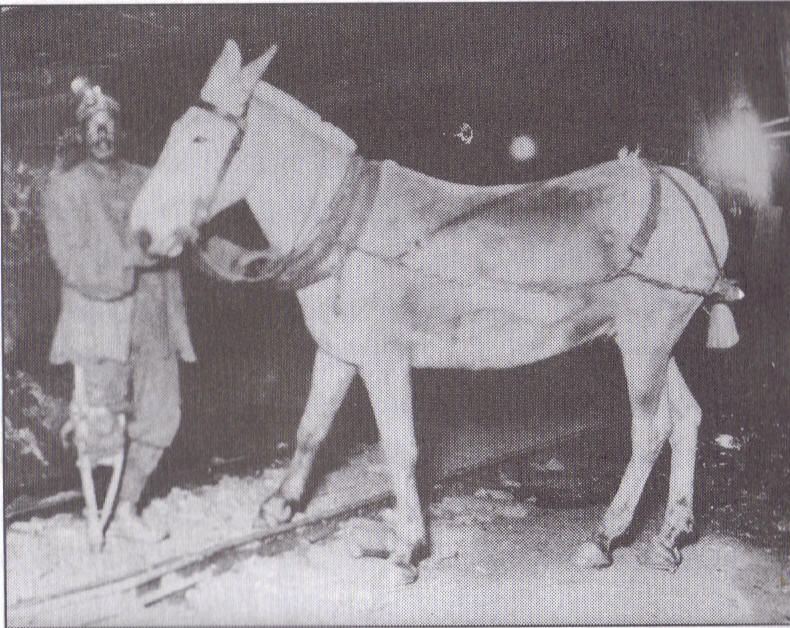
William Thomas Frog Kyle Atkins worked for over 40 years as a coal miner in the bituminous coal fields of West Virginia and Western Pennsylvania. His father born free in 1879 was a coal miner, ... and son of a coal miner grandfather and great grandfather, both born in slavery and leased by slaver owners to coal mining companies in Western Virginia. William (Bill) Atkins entered the coal mines in Beckley West Virginia, working alongside his father and uncles when he was thirteen years of age. It was the apprenticeship custom back then and there for men, Black and White, to take their sons into the coal mines to learn and earn their "State issued mining papers" that would qualify them to work for wages equal to other miners. Miners earned more cash money than most other occupations available to Black men. When he acquired employment in the Pittsburgh region in 1929 before beginning of the great economic depression, the Pinkerton Detective Agency hired by Pittsburgh Coal Company urged him (front-row, third from left) and other Black miners to organize a sportsmen's club and buy rifles to defend themselves against threats by the Ku Klux Klan organized agitation against them as strike-breakers. Before World War II, union leaders called them "scabs, blacks" 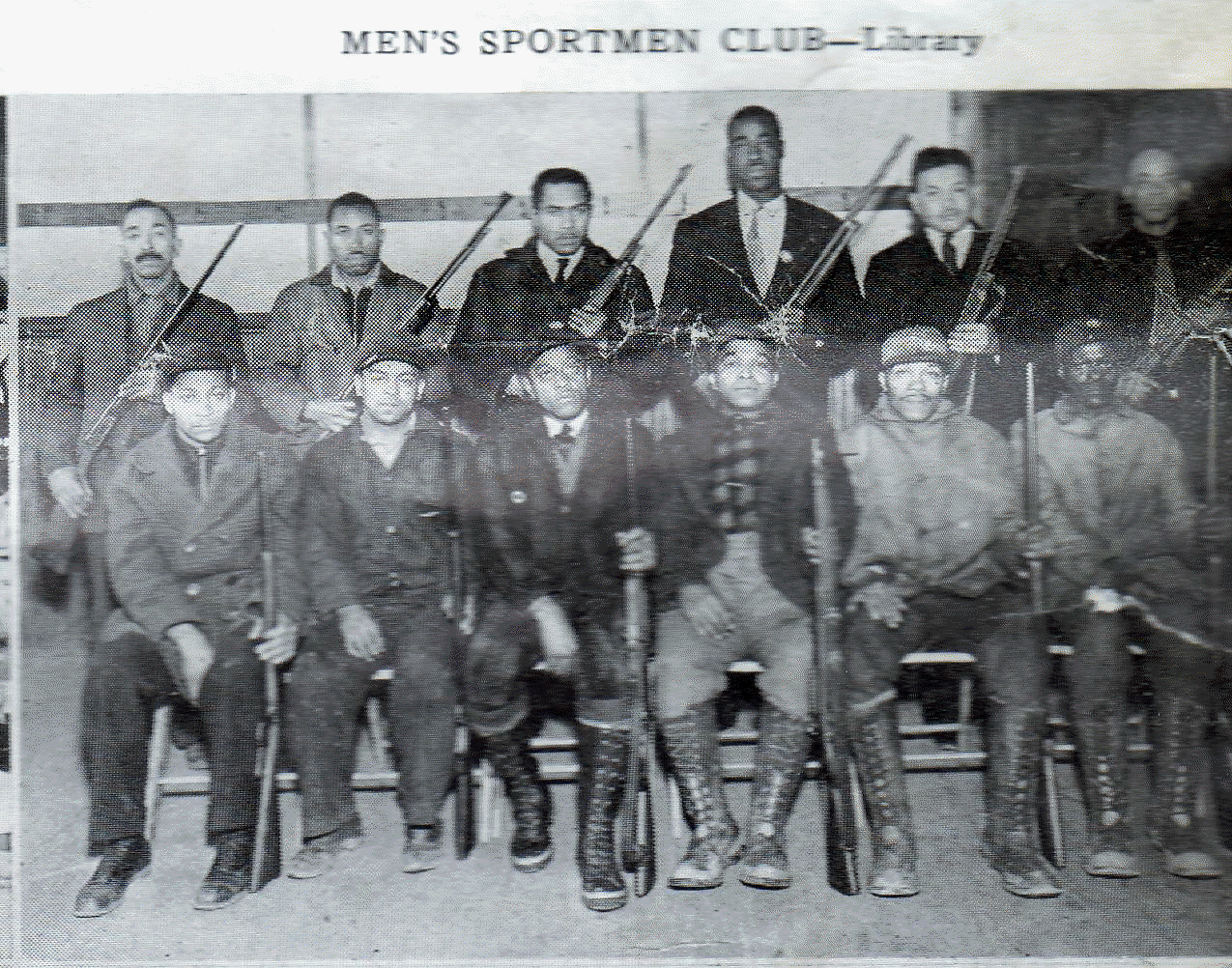
Regardless of their official above ground color classification (Black, Colored, Mulatto, or White) coal miners looked the same underground and were judged by contents of their "courage" and functional skills not skin color. In fact, by end of the 19th century most states required training and certification of miners for the many tasks underground regardless of color, albeit, Ku-Klux-Klan organizers made strenuous efforts, including murder, to keep Black and White miners separate and unequal above and below ground. Coal Miner Communications 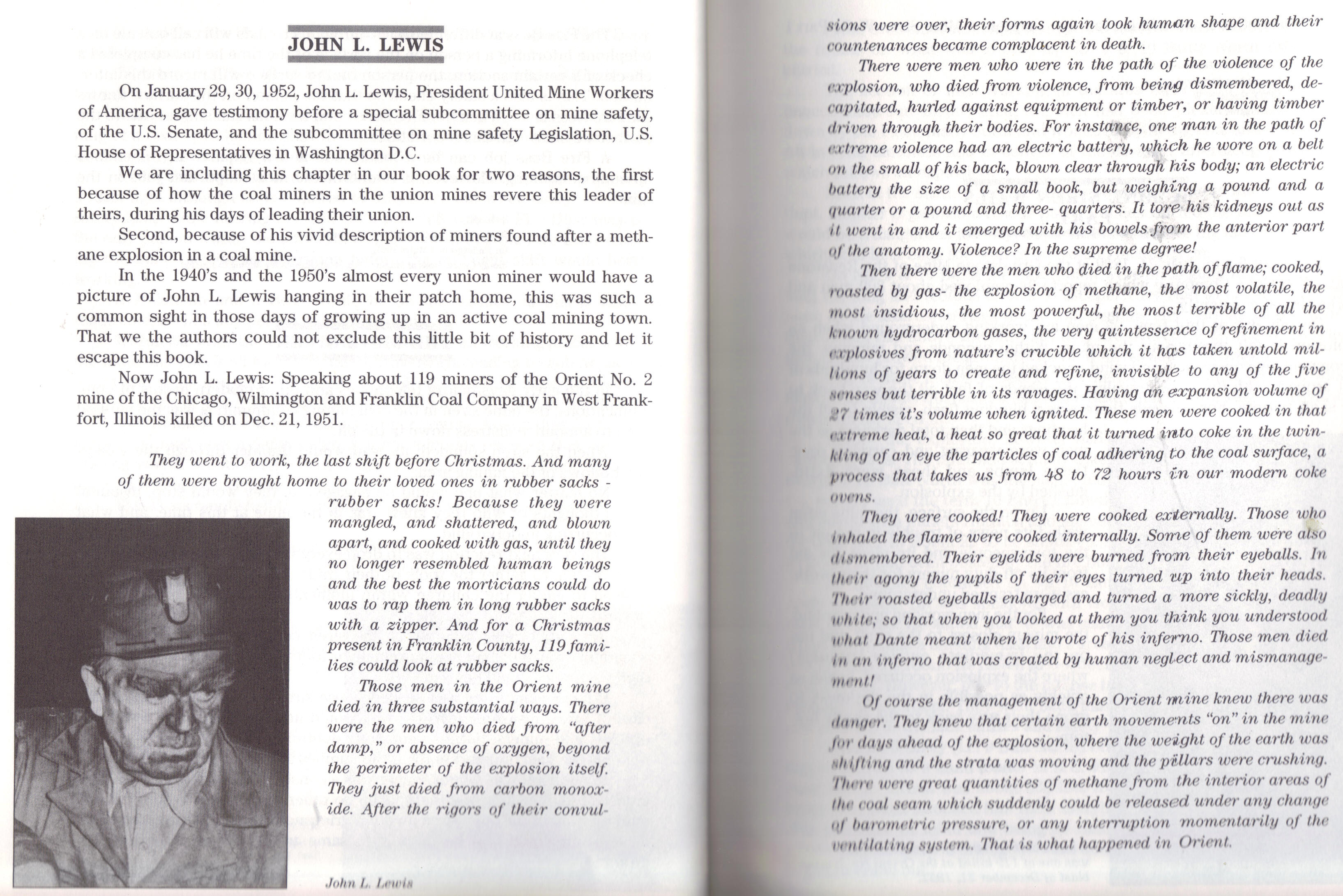
Amazing as it might seem, too few young writers are able to imagine communities having ever come into existence via soldiering and laboring of young men that mattered most, ... including abilities and desires to communicate effectively in understanding and using terms and descriptions of endeavors integrated. 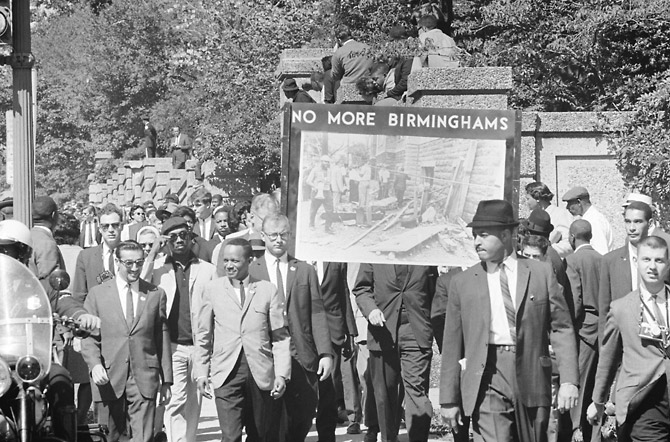 Many of us saw and heard Martin Luther King, Jr. live and up close attempt to inspire and motivate the millions of many and least souls in order to lead them toward "the promised land." The fascinating fact about his ministry of propagating the good news is that so many among the least of us sought to emulate his examples in pursuit of goodness. Many of us saw and heard Martin Luther King, Jr. live and up close attempt to inspire and motivate the millions of many and least souls in order to lead them toward "the promised land." The fascinating fact about his ministry of propagating the good news is that so many among the least of us sought to emulate his examples in pursuit of goodness. In pure economic theory the multiplier effect of his ministry was astounding (at least five thousand to one): in generating ministries like Jesse Jackson and thousands of others across the land and even overseas in places like South Africa. And, these were not the pretentious priestly robed and flashy clothes types, with those famously practiced grins and smiles for Sunday morning collections and honorariums, ... but rather the kind like John Lewis and Nelson Mandela who were ready to give their lives for "the least of us" that ought not ever forget as they try to rationalize their real beneficiaries in comparison with others.
Our grave concern with newly empowered pulpits and politics is their growing avoidance of local issues such as mother's clubs, baseball, marching bands, church leagues, schools and jobs that help inspire, motivate, educate and foster employment of young men to help raise up new and better generations. The emphasis on national fame and identities have seemingly fostered alliances and focus on issues and causes of little or no knowledge and interests to people who learn and live in localized environments of families, churches, employment, geography, and neighbors. Such ought not be generalized in the context of national this and that analysis, ... with staffing of ambitious talking heads oblivious of local matters pending a national leader to speak and be heard. We fear such may be the case with both NAACP and Black Caucus entities in Washington, D.C. and state capitols, ... that census nothing local. Black Caucus Foundation
Martin Luther King vs Malcolm X Movements Our website seeks to expound King's view that rainbow of goodness spans geography and generations in all colors, and arcs toward justice, albeit many believers may not live and travel to see or become beneficiaries. 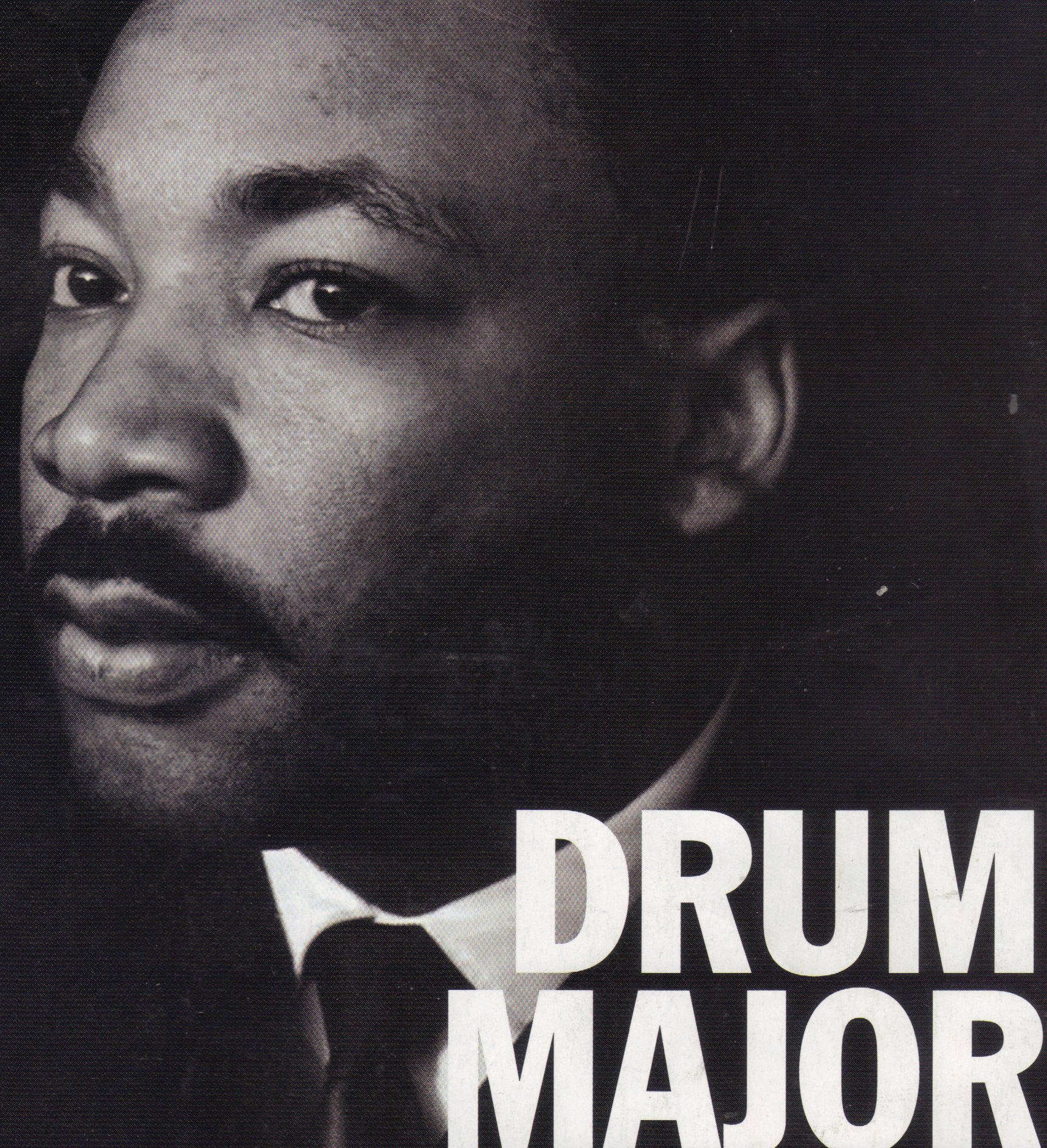 In the new age of visual arts that include movie, television and internet productions we suspect there is an urgent need for media producers to master new technologies in telling "movement" stories scholars have already researched and published such as that of Martin (MLK) and Malcolm X, ... keeping in mind that a movement is not functional without followers able and willing to march forth in the prescribed cause and route even when the leaders are lost. In the new age of visual arts that include movie, television and internet productions we suspect there is an urgent need for media producers to master new technologies in telling "movement" stories scholars have already researched and published such as that of Martin (MLK) and Malcolm X, ... keeping in mind that a movement is not functional without followers able and willing to march forth in the prescribed cause and route even when the leaders are lost.
Most desired movements, though often proclaimed to exist, ... never move anyone anywhere for any length of time, not even as long as the most important movements in life down the fallopian tube. Movements that generate and help build lives useful and helpful to others ought not be generalized to include people who spoke often, like most priestly preachers, ... but moved no one to righteous action or functional reaction to bad attitudes and behaviors by others.
In our view their stories are somewhat reminiscent of the discourse between: Erasmus and Luther ... both of whom were believers but not via same paths in pursuit of goodness: courage, faith, hope and love. So, having read aforementioned discourse readers might want to read scholarly discourse below on Martin and Malcolm. Which movements generated benefits you now have or aspire to gain? http://www.philosophy.uncc.edu/mleldrid/SAAP/CLT/DP02.htm Malcolm X 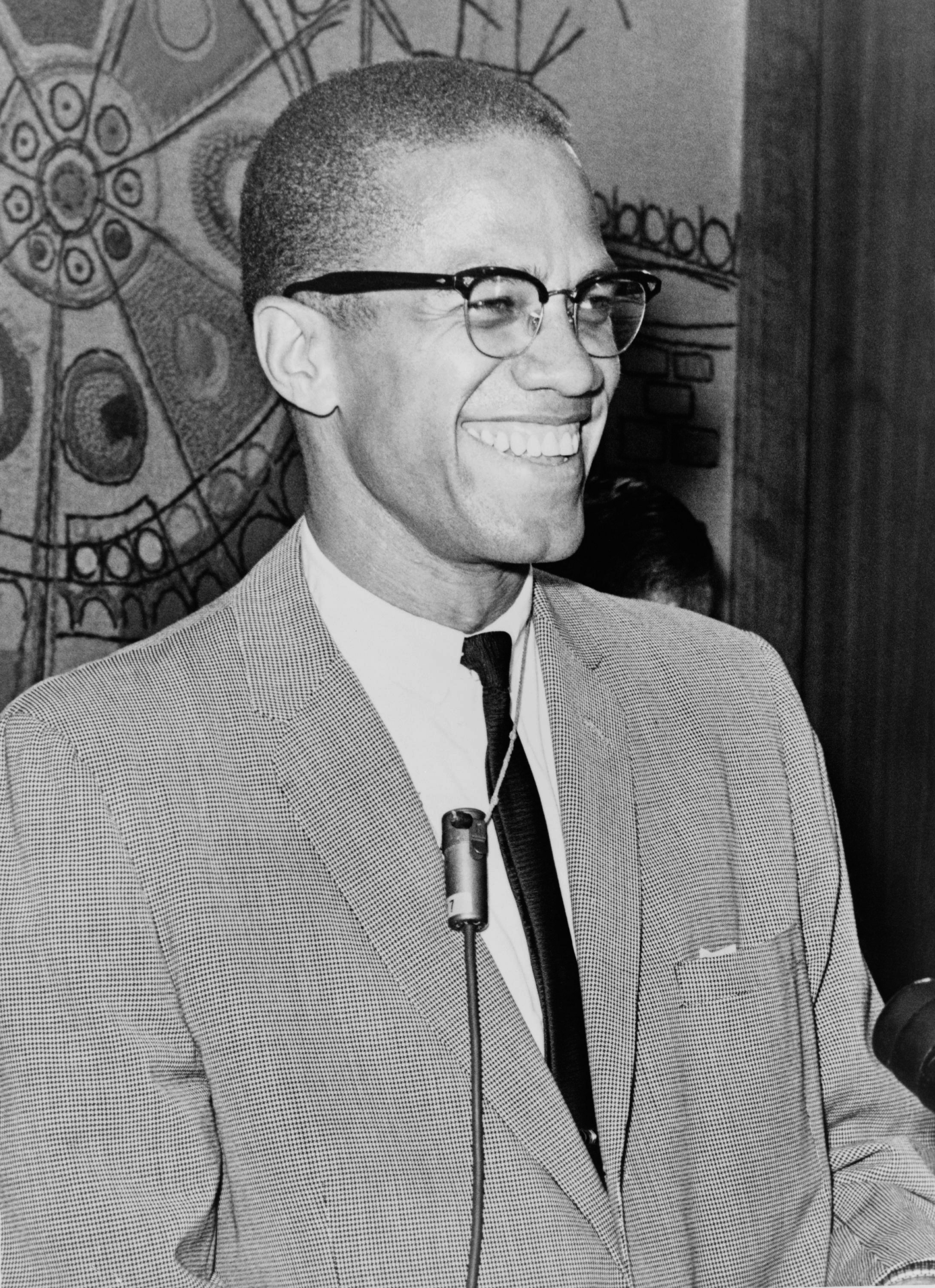 The fallacy of the consequent is that youth are conflicted with life experiences and thoughts by many otherwise gifted and talented minds with reasoning that does not join the life experiences of Malcolm X nor functional faith of men like Dr. Martin Luther King, Jr. When all is said and done, we believe it was Dr. King who helped define, organize and continue political and social revolutions among post-Civil War generations of people with African, European and Native American heritages. The fallacy of the consequent is that youth are conflicted with life experiences and thoughts by many otherwise gifted and talented minds with reasoning that does not join the life experiences of Malcolm X nor functional faith of men like Dr. Martin Luther King, Jr. When all is said and done, we believe it was Dr. King who helped define, organize and continue political and social revolutions among post-Civil War generations of people with African, European and Native American heritages.
Indeed, King helped continue a heritage began long before he was born, ... while Malcolm sought to overcome memories of racist American terrorism that destroyed his father and mother, and stagnated their generation based on color. Malcolm believed the terrorism against his father originated from false religious beliefs historically effective in generating many minds of White men to turn against spreading Christian dogma of "justification by faith" preached by men like: John Wesley IDEAS OF REVOLUTION 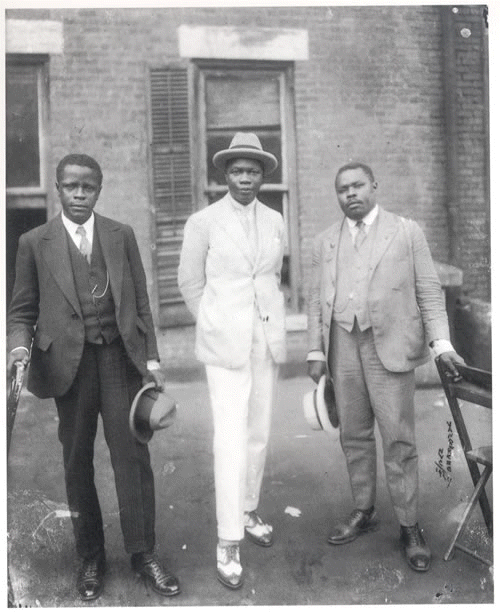 Prince Kojo Prince Kojo
Marcus Garvey sought to conceive, give birth, nurture, inspire, motivate, educate and deploy a revolution based on color and economic relationships among people of African heritage. In his mind, the revolution had to be political and social. He was Roman Catholic and his first mass meeting in the United States occurred at Harlem based Saint Mark's Roman Catholic Church. Garvey learned to his dismay that most African-American men of means had their own entities and interests within the greater establishment of White society, ... and wanted integration not separation. 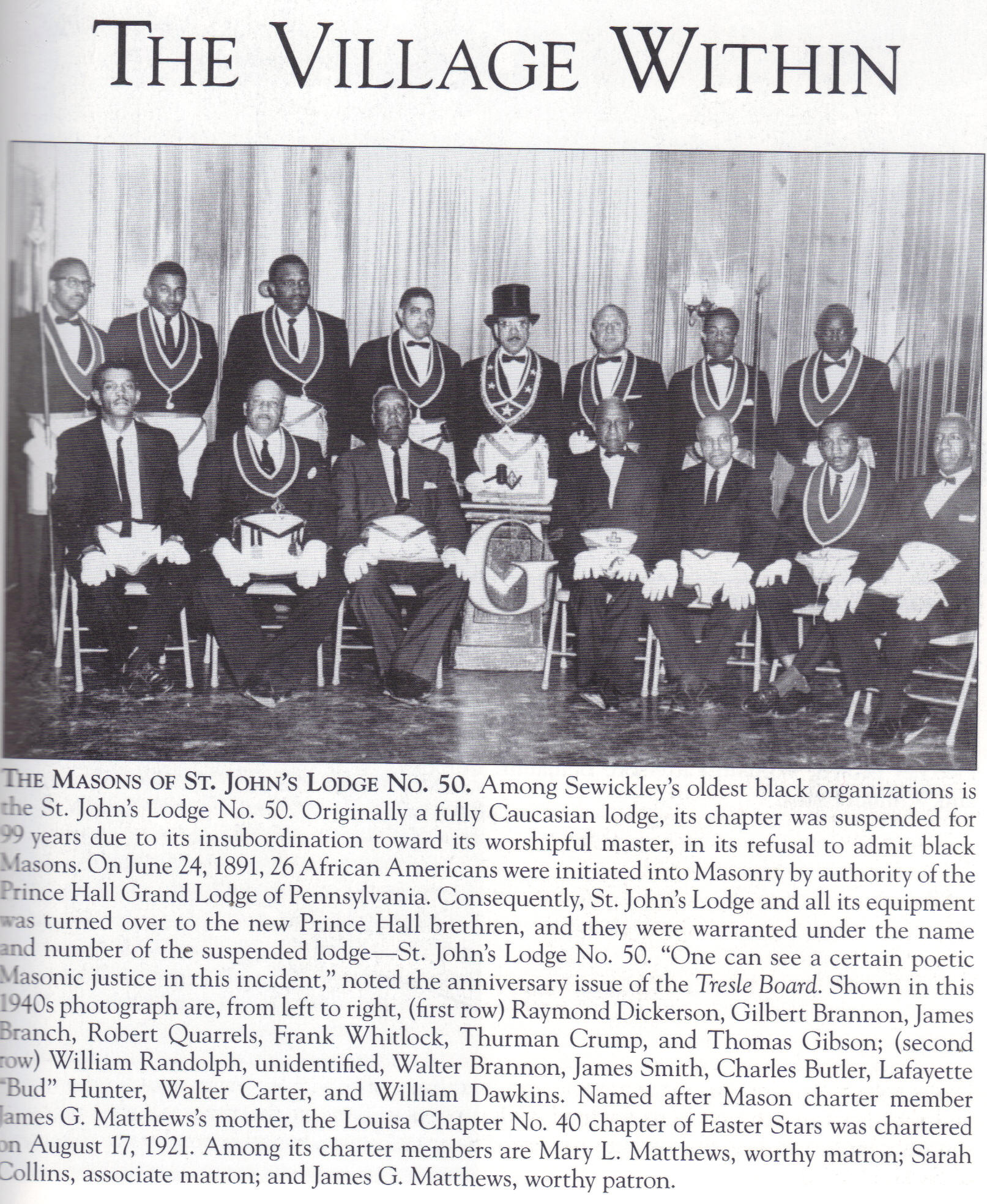
His beliefs as a Christian believer were at conflict with experiences and observations of being Black in a world dominated by Whites so far as he knew. Picture on above reflects Marcus Garvey's visit to the French colony of Dahomey (modern day Benin) with Prince Kojo in white suit. Garvey wanted him to join, support or lead a political and social revolution in Africa. He quickly learned that African young men who had served in the military forces of France during World War I (1914-1918) and received honors and money for such, ... were not influenced or led by intellectuals like Kojo. Of course, Garvey would not have known about Kojo's world; just as factors later existed when the Republic of Liberia, under pressure from the United States Government and Firestone Rubber Corporation, ... announced that it would not allow Garvey's Black Star Shipping Line to land passengers in Liberia. Yet, we can say that Marcus Garvey initiated a political and social revolution that generated Kwame N'Krumah and all the independence movements leading to African political independence some forty years after World War I. Garvey did not live to see his movement bear fruit. Universal Negro Improvement Association-UNIA 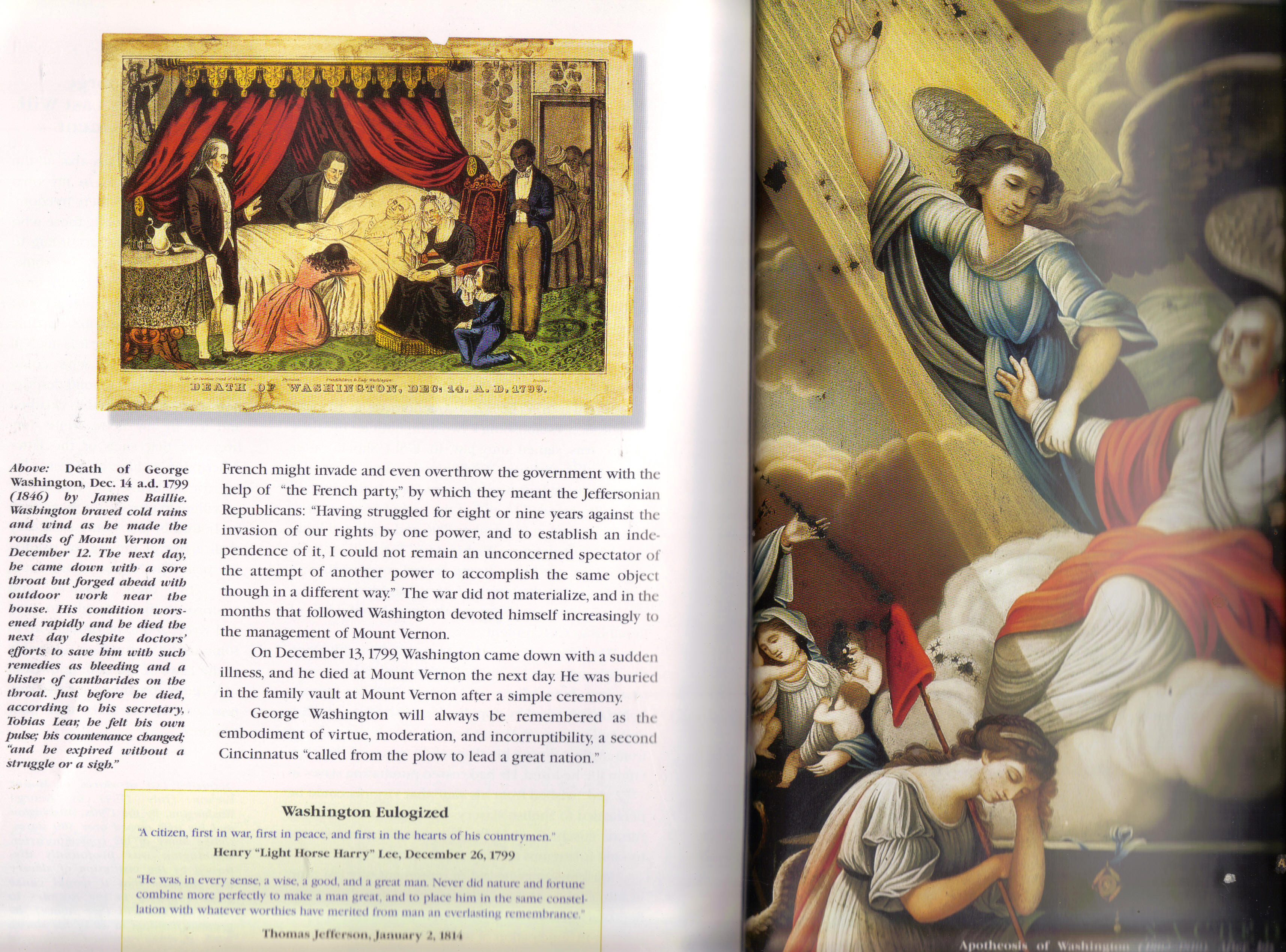 Slave Stud Farms In such cases of slaves who served in the revolutionary forces, slave owners were granted property rights to emancipate them if they chose to do so, ... but the new federal government was not bound to issue them military warrants for free land grants issued to White veterans with estimated 300,000 enlistments spread over eight bloody and brutal years of combat movements over land, water, snow and ice. Most were motivated by revolutionary aspirations, hopes and promises of lands and waters to be taken from British loyalists and Native Americans. Older and more wiser men may well have been motivated by revolutionary ideals such as life, liberty and pursuit of happiness; but, younger and lesser men who volunteered in Washington's Army and Navy (like most non-conscript armies in human history) were mostly those with aspirations for an income and better opportunities to gain property and a wife (impossible without income in colonial life wherein White women were scarce) as a result of sacrifice and risking their lives. King George's Cousin William of Hesse-Kassel Hessians In America 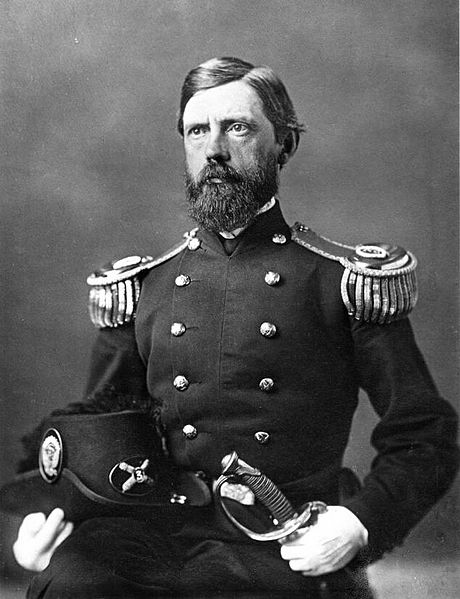 Major General John Fulton Reynolds (1820-1863) image on right is of very special interest in the American revolution story. One of the Hessian prisoners allowed to stay in America around 1787 was the father of John Reynolds who fathered the Union savior at Gettysburg. Major General Reynolds was killed the first night of battle but had devised a famed "fishhook defense perimeter" that prevented a victory by Confederate General Robert E. Lee. Lee's strategy was to invade and achieve a victory in the home-state of great anti-slavery Senator Thaddeus Stevens; thereby forcing President Abraham Lincoln to sue for peace and allow retention of slavery. Major General John Fulton Reynolds (1820-1863) image on right is of very special interest in the American revolution story. One of the Hessian prisoners allowed to stay in America around 1787 was the father of John Reynolds who fathered the Union savior at Gettysburg. Major General Reynolds was killed the first night of battle but had devised a famed "fishhook defense perimeter" that prevented a victory by Confederate General Robert E. Lee. Lee's strategy was to invade and achieve a victory in the home-state of great anti-slavery Senator Thaddeus Stevens; thereby forcing President Abraham Lincoln to sue for peace and allow retention of slavery.
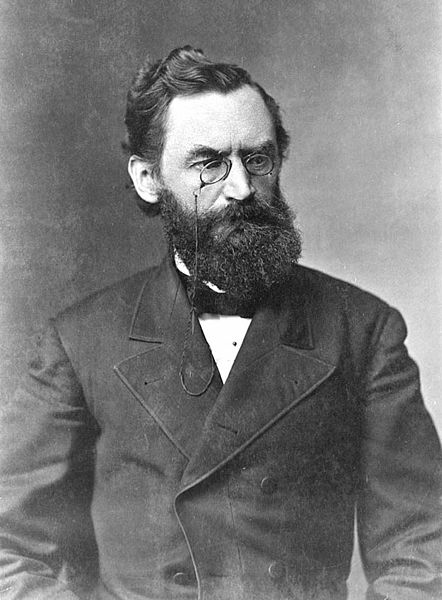 The Union victory at Gettysburg allowed President Lincoln to fully deploy the armed might of real freedom fighters (upwards of 200,000 U.S. Colored troops and sailors, ... organized, enlisted, equipped, trained, deployed and joined with the 900,000 White Union soldiers and sailors) necessary to overcome 600,000 rebels, emancipate four million slaves and return rebellious states to the United States. All men of color were enlisted by and in regiments or sailing ships usually for a one year tour of duty, and with opportunities for reenlistment tours and more enlistment bonuses. The Union victory at Gettysburg allowed President Lincoln to fully deploy the armed might of real freedom fighters (upwards of 200,000 U.S. Colored troops and sailors, ... organized, enlisted, equipped, trained, deployed and joined with the 900,000 White Union soldiers and sailors) necessary to overcome 600,000 rebels, emancipate four million slaves and return rebellious states to the United States. All men of color were enlisted by and in regiments or sailing ships usually for a one year tour of duty, and with opportunities for reenlistment tours and more enlistment bonuses.
It happened that way and it was the Second American Revolution in which White men of German heritage such as Carl Shurtz portrayed in picture on the left, ... helped activate a political and social revolution that both saved the Union and ended chattel slavery in the United States. Shurtz like Frederick Douglass was much more than an orator. He was also a gifted and able organizer of movements that functionally mattered in real revolutions as opposed to rhetoric by talking heads appealing to what masses may feel, ... rather than what young men, and young women also, are willing to do and be led to do in movements that bring about desired change for the better.
Revolutions differ from insurrections and rebellions to the extent that we do not dare consider a revolution to have occurred until after the matters of insurrection and rebellion are ended and settled with the movement of power. In the case of African-Americans in first half of the 19th century, ... it was very clear to men like Frederick Douglass and Reverend Henry Hyland Garnet that only a revolution could generate the change needed. He correctly perceived that only an alliance with the Messianic Christian majority (such as Scotch-Irish Presbyterians) against the hated institutions of chattel slavery, ... could ever expect to win personal liberty for millions of enslaved souls. Douglass was not a Nat Turner expecting and hoping for up-risings by poorly led untrained young men of various colors, who though courageous and brave would be no match for well-armed and led mobile young men of over-whelming force of laws and learning. So, the Second American Revolution was not rooted in colors but common causes embraced and led by men like Abraham Lincoln in alliance with such as: Frederick Douglass and Martin Delany among hundreds of other literate and learned men of Black and White heritage who understood power differently than perceived by Black power advocates in the 1960s. Black Power
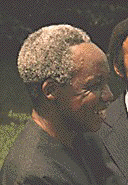 We saw and heard many aspirants espouse doctrines based on color, not cause such as the Christian mission movements and colonial government primary schools movements that had initiated and provided basic education for virtually all the leaders of Anglo-African independence. We saw and heard many perceived leaders seeking uniformity among greatly despaired young men who had never learned to march straight or swim in lakes of knowledge about generations of goodness. We saw and heard many aspirants espouse doctrines based on color, not cause such as the Christian mission movements and colonial government primary schools movements that had initiated and provided basic education for virtually all the leaders of Anglo-African independence. We saw and heard many perceived leaders seeking uniformity among greatly despaired young men who had never learned to march straight or swim in lakes of knowledge about generations of goodness.
Indeed, many such as Ron Karenga and Geronimo Pratt went to Tanzania expecting to find revolutionary Marxists but instead found Christian indoctrinated kind hearted ex-school teachers like Julius Nyerere. He, like Dr. Martin Luther King, Kwame N'Nkrumah and many others of African heritage, including authors of this site, ... was born in a generation that witnessed over 100 million people in Africa, America Asia, and Europe killed in the course of war.  We make this point to illustrate that skin color was only one of variables at issue with the would-be revolutionaries that admired Malcolm X. We want youth of today to understand their very failed views about power resulted from a sheer lack of knowledge about non-violent movements beginning with that launched by Jesus of Nazareth. Those of us who were inclined to embrace the movement doctrine of MLK generally rejected Malcolm as a non-believer in our chosen philosophy of life espoused by the Southern Christian Leadership Conference. We make this point to illustrate that skin color was only one of variables at issue with the would-be revolutionaries that admired Malcolm X. We want youth of today to understand their very failed views about power resulted from a sheer lack of knowledge about non-violent movements beginning with that launched by Jesus of Nazareth. Those of us who were inclined to embrace the movement doctrine of MLK generally rejected Malcolm as a non-believer in our chosen philosophy of life espoused by the Southern Christian Leadership Conference.
African-Americans like James H. Robinson, MD as first of the least of us in 1953 to graduate from the University of Pennsylvania's Jefferson Medical College, ... embraced Dr. Martin Luther King with Christian love and moral support by fellow physicians. Our website has sought to generate special attention to Robinson Generations of gifted and talented offspring with the surname Robinson to help make our point that a greater purpose in their being may have long existed. Civil War Sailors and Soldiers We personally rejected Malcolm's generalizations about "house-slaves and field hands" because it discouraged competent scholarship into lives of people whose ancestors (especially Black, Mulatto and White Civil War soldiers and sailors) helped "goodness" overcome the hated institution of chattel slavery. Enlistments by the free-born, escaped slaves, house-slaves and field hands defy Malcolm's analogy of the past, ... however popular such might be with folks unenlightened in their personal ancestral history predating, during and after the Civil War during which 43,000 men of African heritage were killed in the fighting. More than a hundred thousand more were hunted and murdered by ex-confederate veterans during 1866 after official war had ended; and, we ought not confuse this terrorism with Ku Klux Klan lynching that followed for many turbulent terror filled decades (1870-1960). Emancipation Patriots Susie King Taylor President Barack Obama 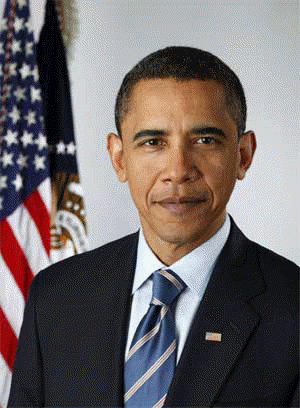 Our theme on this page gives an update on what we have seen and heard during past three years by various groups challenging legitimacy or worthiness of President Barack Obama. He has been challenged as a non-believer, non-American and even his authenticity to be a Black man, ... as defined by amazing logic of men like Cornell West, and now Herman Cain. We are not amused by the former pretending to be a philosopher of Christian love; and offended by latter's embrace of economic ideology we have seen and heard before as extremely bad news beyond monetary profits: Our theme on this page gives an update on what we have seen and heard during past three years by various groups challenging legitimacy or worthiness of President Barack Obama. He has been challenged as a non-believer, non-American and even his authenticity to be a Black man, ... as defined by amazing logic of men like Cornell West, and now Herman Cain. We are not amused by the former pretending to be a philosopher of Christian love; and offended by latter's embrace of economic ideology we have seen and heard before as extremely bad news beyond monetary profits:
We have seen and heard bad news of pretentious scholars in the tragic story of Liberia wherein many among the least of us born therein, both Christian and Non-Christian, ... chose the path of judging one another on the basis of caste and color rather than contents of character. 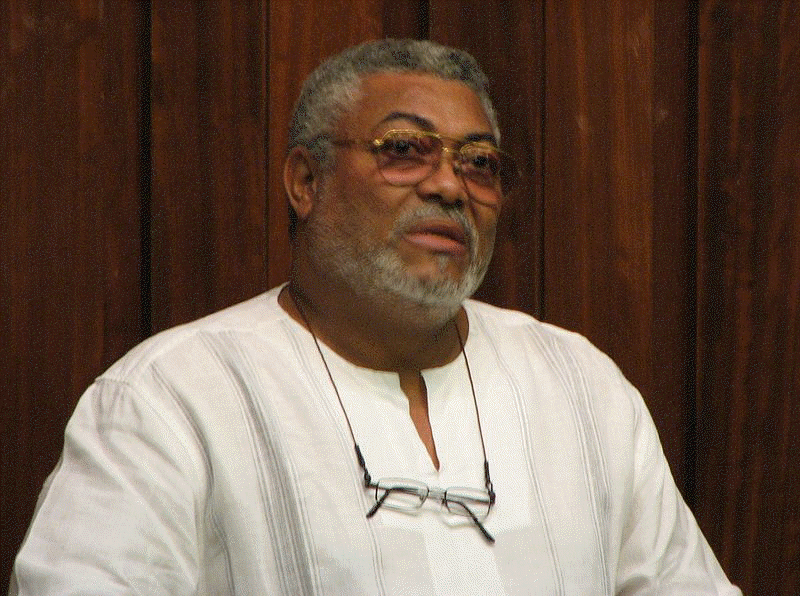 Believers are reminded about ancient statements such as: "Can anything good come out of Nazareth?" ... and non-believers have doubted that any pursuit of goodness was generated in Africa by ex-slaves from Great Britain and the United States, ... such as the Joseph Roberts born of African and European heritage. Barack Obama is not the first President we know of both African and European ancestral heritage. Believers are reminded about ancient statements such as: "Can anything good come out of Nazareth?" ... and non-believers have doubted that any pursuit of goodness was generated in Africa by ex-slaves from Great Britain and the United States, ... such as the Joseph Roberts born of African and European heritage. Barack Obama is not the first President we know of both African and European ancestral heritage. President John (Jerry) Rawlings (Republic of Ghana) 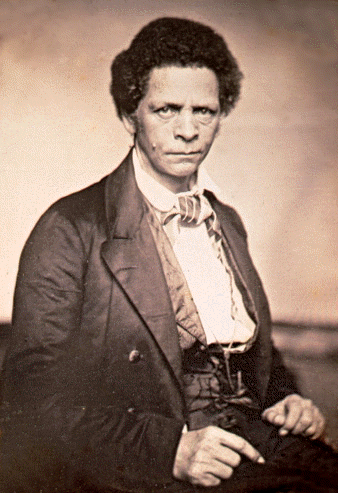 President Joseph Jenkins Roberts (Republic of Liberia), on left, born abt. 1809 in Norfolk, Virginia migrated to Liberia sometime after its founding by Reverend Lott Carey and others sponsored by the American Colonization Society with leaders such as George Washington's nephew Bushrod Washington and Francis Scott Key. Their policy goals were to encourage emigration of emancipated/free Negroes out of the new United States to prevent them from contaminating people still enslaved with ideas of freedom and liberty. President Joseph Jenkins Roberts (Republic of Liberia), on left, born abt. 1809 in Norfolk, Virginia migrated to Liberia sometime after its founding by Reverend Lott Carey and others sponsored by the American Colonization Society with leaders such as George Washington's nephew Bushrod Washington and Francis Scott Key. Their policy goals were to encourage emigration of emancipated/free Negroes out of the new United States to prevent them from contaminating people still enslaved with ideas of freedom and liberty.
1810 Virginia Census We speculate that Roberts emigrated because though he was fathered by a White man and not a slave, he was not treated like Whites: ... he was required to register and pay annual fees for himself and family as evidence that he and they were not slave property for which slave owners were required to pay taxes. And, as was the custom in ante-bellum years, free Negroes were always subjected to being arrested or kidnapped for sale as slaves to far-away places like Alabama, Arkansas, Mississippi and even Texas where slave prices were demanding and high. Roberts Generations 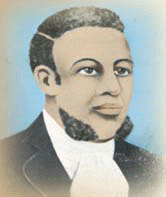
Professed interest in poor people The facts are that Malcolm did not know what he did not know about Africa or America, ... because he had neither seen or heard much about either other than his limited education, reading and exposure had afforded. To his credit and likely cause of his assassination, Malcolm X did recognize the bad news generated by polygamy among people of African heritage. Indeed, polygamy is a full-force brake on human progress and fundamental source of conflicts in any society. By quite a contrast, ... Cornel West was nurtured in the vicinity of Black negative image-makers (Hollywood); and was very much influenced by junior college level thinkers in the 1960s who rightfully rejected the negative portrayals and propagations by Hollywood. Their reasoning as color conscious rebels included mythical collective power none have ever had or pursued in the course of integrating African, American, Asian or European societies and institutions. 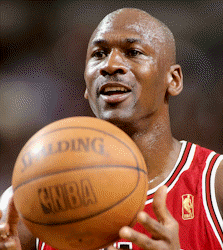 We are reminded that both critics (like President Obama) likely enjoy the simple hip-hop-jump and shoot movements of Basketball rather than the long and tiresome rigors of hard-ball, ... the All-American game. But, the differences are the President understands that off-court life is much more complex, ... because managers of millions of men and trillions of dollars don't throw hard-balls at waist-high talking heads (like Cornel West). They throw down on him with blinding speed fast as one can say Jackie Robinson. Even the great gifted athlete Michael Jordan Air Jordan found hardball to be arduous and difficult in mastering, and quite unlike Robinson , ... Jordan has not grown old and gray with passions to help "the least of us" such as Dr. Martin Luther King, Jr. So, how, when, where and how do super-stars in entertainment and sports help motivate boys struggling to become good men in pursuit of goodness versus challenges of "feeling and looking good" .... as too many thousands and even the tens of thousands imagine stars to be. We are reminded that both critics (like President Obama) likely enjoy the simple hip-hop-jump and shoot movements of Basketball rather than the long and tiresome rigors of hard-ball, ... the All-American game. But, the differences are the President understands that off-court life is much more complex, ... because managers of millions of men and trillions of dollars don't throw hard-balls at waist-high talking heads (like Cornel West). They throw down on him with blinding speed fast as one can say Jackie Robinson. Even the great gifted athlete Michael Jordan Air Jordan found hardball to be arduous and difficult in mastering, and quite unlike Robinson , ... Jordan has not grown old and gray with passions to help "the least of us" such as Dr. Martin Luther King, Jr. So, how, when, where and how do super-stars in entertainment and sports help motivate boys struggling to become good men in pursuit of goodness versus challenges of "feeling and looking good" .... as too many thousands and even the tens of thousands imagine stars to be.
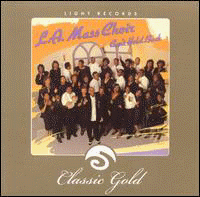 Stormy Monday Stormy Monday
End poverty of people (especially young mothers) who can not (or will not) value gainful labor and learning? We need not be rocket scientists to understand that good motherhood (like Mary) is the source of goodness in all matters that truly matter. Let hundreds of thousands of mentally ill adults and juveniles out of prisons? To do what? To who? How? When? Where? President Obama and no one else has answers to such perplexing questions and West ought to stop pretending that he does. Empowerment, now as always in the past, is a product of trust by believers in others to "do the right thing." Most imagined revolutionary movements for success, sex, love and power are fueled with hot-air from imitators of life like Gil Scott-Heron born in 1949 and Cornel West born in 1953 generation #66. We dare not imagine they joined superior reasoning with the faith of fathers and mothers born in prior generations and fought the good fight to overcome the obstacles that gave substance to their potentials. What is gained by who when educated minds are proclaimed and wasted as poets and professors of nothingness; ... espousing the rhetoric of revolution, not functions of change. 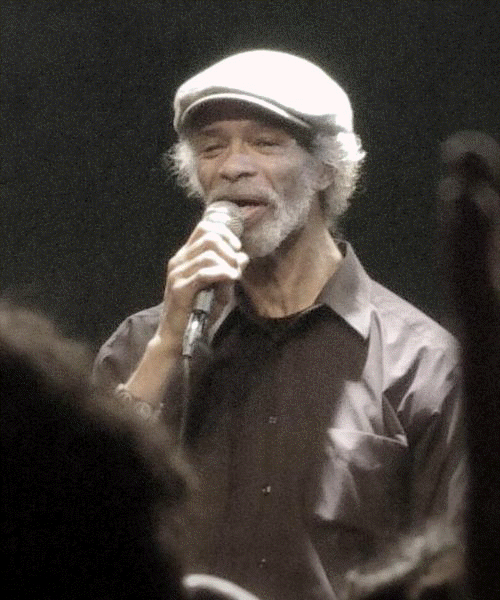
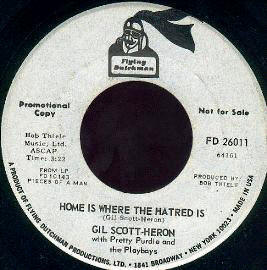 Our problem with them is that both are examples of many gifted and talented (ordained and not ordained) with African heritage talented linguistic heritage to tell stories that entertain audiences. And, like many gifted Africans they have done so without inspiring, motivating or educating "the least of us" in functional generation of life, liberty and pursuit of happiness to be helpful or useful in the cause they profess to embrace. Our problem with them is that both are examples of many gifted and talented (ordained and not ordained) with African heritage talented linguistic heritage to tell stories that entertain audiences. And, like many gifted Africans they have done so without inspiring, motivating or educating "the least of us" in functional generation of life, liberty and pursuit of happiness to be helpful or useful in the cause they profess to embrace.
To be sure, West is precisely the proof that gifted and talented babies of African heritage are born every day. But the cultural weakness is that too many use their gifts to entertain rather than help "the least of us" grasp and understand functional definitions of brotherhood and community. West has ignored context long-term laboring, learning and heavy lifting by fathers, mothers and others without artificial stimulants. He and his buddy Tavis Smiley are somewhat guilty of leaning on faith in nothingness rituals that more or less ignore the functional histories that launched world's longest lasting offensive for goodness sake.
We urge the President to not swing at bad balls aimed at his head, ... rather than over home-plate. West, like the rest of us, is witness to bad news seen and heard in our bedrooms, homes, churches, neighborhoods, and schools without ball-fields, functional labor attitudes and skills or even driver's licenses to help generate "boyz to men." President Obama dares not try to rationalize or hip-hop over these blaring deficiencies in ghetto attitudes and behaviors, ... generated by at least five decades of decadence that men like Professor West deliberately avoid in addressing issues (like matriarchy and polygamy) that have re-enslaved millions of souls walking and talking in demeanors (pants down below waist) and tongues (rage raptures).
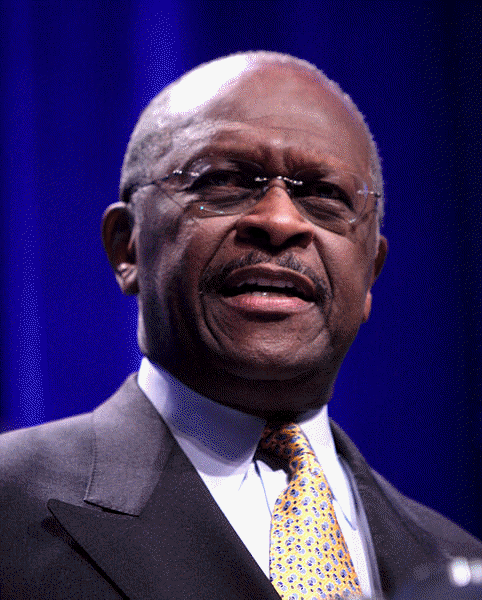 By contrast, Atlanta's adopted son Herman Cain, the otherwise typically brilliant Morehouse educated preacher of excellence, ... professes to be an "American" not an African-American like "the least of us" who might choose to embrace African roots because Christ asked that we do so? Of all the people of earth since the first century goodness that conceptualized a new philosophy of life, ... those in America up from a past of chattel slavery ought to understand what happens when no one cares or knows about what exists in Africa. Our challenge therein is not about color but our cause promised in prayers and pleadings of gifted and talented ancestral believers, plus men and women of means who mattered in opening doors for "the least of us." By contrast, Atlanta's adopted son Herman Cain, the otherwise typically brilliant Morehouse educated preacher of excellence, ... professes to be an "American" not an African-American like "the least of us" who might choose to embrace African roots because Christ asked that we do so? Of all the people of earth since the first century goodness that conceptualized a new philosophy of life, ... those in America up from a past of chattel slavery ought to understand what happens when no one cares or knows about what exists in Africa. Our challenge therein is not about color but our cause promised in prayers and pleadings of gifted and talented ancestral believers, plus men and women of means who mattered in opening doors for "the least of us."
Arthur Fletcher 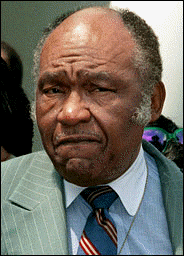
Or did Morehouse theology teachings change to reflect that of Cain, ... rather than Dr. King and a lot of past master republicans like Art Fletcher, son of a pragmatic military career soldier? Cain, like Fletcher and other brothers on the other side, ... perhaps dares to tell guys like Congressman Paul Ryan and other tea-party hooters what he, his daddy and daddy's daddy have seen in heard before he climbed to top of the mountain, because of affirmative attitudes always opposed by so-called conservatives, ... north, south, east and west! He can do the right thing, as fellow alumni Spike Lee might urge, and tell the truth to those otherwise uninformed folks on the right, ... like Michelle Bachman who at best learned her American history from other talking heads. John Wayne? It is inconceivable to folks like her that men of African heritage in America fought and struggled for liberty just as her ancestors might have done. Did they? Morehouse College Cain can help enlighten and educate others if he chooses not to forsake his basic Morehouse calling to be helpful and do no harm. We wonder if Herman Cain has ever told his tea-party audiences that upwards of 48 of his ancestors fought in the Civil War to end slavery by private sector interests, who afterwards still did not want to pay them in cash but rather as share-croppers. Nay, the name of the game is American hard-ball otherwise called "politics." "In an interview with Bloomberg view, Cain argued that he is a 'black American' rather than an 'African American' on account of being able to trace his ancestors within the US, describing Barack Obama as "more of an international...look, he was raised in Kenya, his mother was white from Kansas and her family had an influence on him, its true, but his dad was Kenyan". Interviewer Jeffrey Goldberg pointed out that Obama had spent 4 years of his childhood abroad, and that it was in Indonesia not Kenya, at which point Cain revised his claim." [Wikipedia] Barack Obama,Sr. 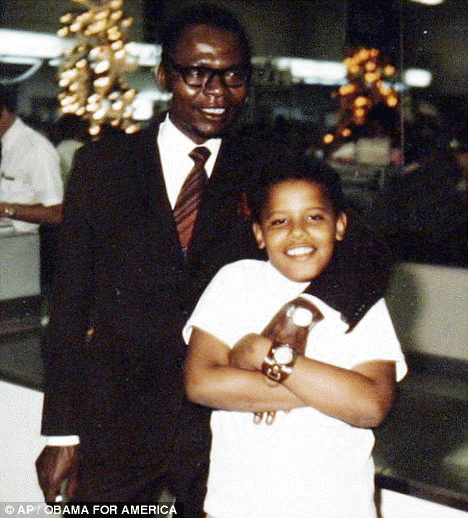 Herman Cain's mastery of mathematics indicates that he likely also mastered probabilities and levels of difficulty associated with baseball learning curves wherein most first inning hitters strike out, and few make it beyond first base; but, those who do are rare indeed. Because of opportunities in America, some people of African heritage have made it beyond the hitters box and even hit home runs like Oprah and Barack. Herman Cain's mastery of mathematics indicates that he likely also mastered probabilities and levels of difficulty associated with baseball learning curves wherein most first inning hitters strike out, and few make it beyond first base; but, those who do are rare indeed. Because of opportunities in America, some people of African heritage have made it beyond the hitters box and even hit home runs like Oprah and Barack.
The greatest game to evolve in America has been baseball albeit a lot of anglophile oriented bid-whist and bridge enthusiasts might disagree as they partner up for endless matches of skills and luck of the draw. And, of course it is easy to deny or denigrate someone or something never seen or heard, such as the father of Barack Obama whose generation of African scholars fathered not only President Barack Obama, ... but also many thousands of other gifted and talented young men and women we now know as fellow achievers in Africa, America and Europe (especially Great Britain and France). We hope they all matter in striving to make life better for millions of "the least of us" that we care about because Christ asked that we do so. We have a moral mandate from Jesus himself to care about Africans whether we know them or not, ... east, north, south and west all the way to the Solomon Islands experienced by President Kennedy who changed the immigration policies that allowed Barack Obama, Sr. to get into America. Herein, we urge Herman Cain to hold onto his Morehouse faith, not guys like Limbaugh who flunked every college course ever taken and never graduated from any institution of higher education or higher callings. Kenya Music Seen and Heard 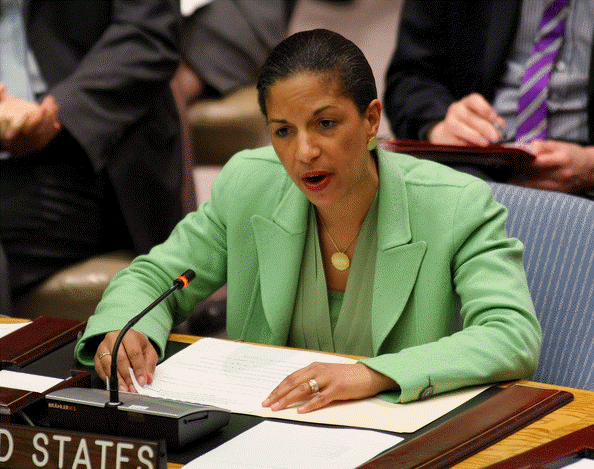 We were in Atlanta a few years ago attending the Trumpet Awards when Michelle Robinson Obama mounted the podium and proceeded to spell-bound the audience of achievers (Black and White) that likely included men like Herman Cain. Women in the audience liked the way she looked, spoke, walked and used the language depicting a very high level of achievement, like Hillary Clinton, the Rice cousins and a lot of similar women like Johnnetta B. Cole critiquing every word and syllable. We were in Atlanta a few years ago attending the Trumpet Awards when Michelle Robinson Obama mounted the podium and proceeded to spell-bound the audience of achievers (Black and White) that likely included men like Herman Cain. Women in the audience liked the way she looked, spoke, walked and used the language depicting a very high level of achievement, like Hillary Clinton, the Rice cousins and a lot of similar women like Johnnetta B. Cole critiquing every word and syllable.
Ambassador Susan Rice Michelle's theme "Yes, we can" awe struck us all as something that Jackie Robinson or a lot of other Robinsons might likely have said that way. A few seconds into her speech in the city that Morehouse College graduates and supporters helped build, ... and most older male listeners remembered those days when Jackie was at bat. Many doubted that he could or would do what we wanted him to do for "the least of us," ... proving wrong the radio wind-bags who often openly told listeners that "he is going to fail." Rush Limbaugh Barack the Magic Negro
Certainly, Michelle has likely reminded husband Barack Obama, Jr. about game of hard-ball brilliantly played by her most illustrious distant cousin: Jack Roosevelt Robinson who not only avoided hard-balls thrown a hundred miles per hour at his head but consistently got up off dirt to make base hits that mattered in winning the great American game of power. We want to emphasize that for whatever reason divine providence may have, there are gifted and talented births that have and can serve a greater purpose than their own glory. The problem we have with many is that they do not see themselves as part of a line-up in a long-lasting game without beginnings or endings that we know of, ... other than Jesus of Nazareth whose philosophy of life so freely given is mostly about rules of engagement (how we play the game). Even so, our beloved brother Jackie was not the first in line-up of all-stars in over-comin |